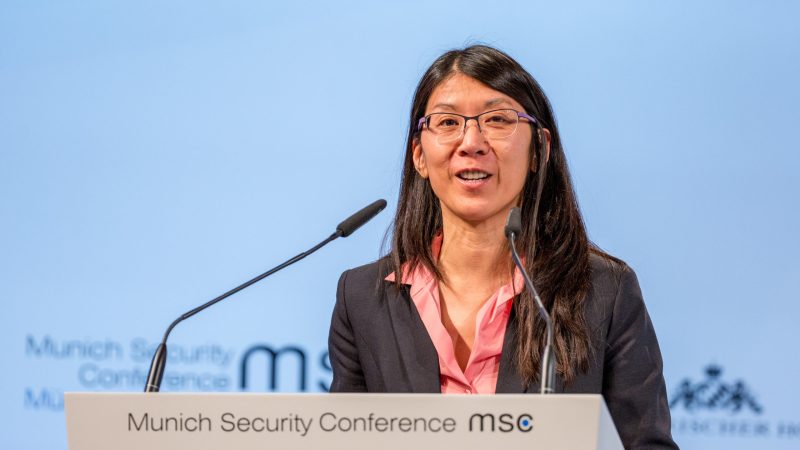The international Doctors Without Borders — or in French, Médecins Sans Frontières (MSF) — president Joanne Liu paid a visit to the Stanford Institute for Economic Policy Research (SIEPR) on Feb. 18. In case you do not know where the SIEPR building is, it is located behind Landau (the hub for all economics) and Memorial Auditorium. Liu, who is trained as an emergency pediatric physician, is on campus as a visiting international scholar.
When starting off her commentary, she made a point that resonated with many in the room. At Stanford, we are really living in luxury compared to many of the places where Liu has worked. Although we may complain about the occasional bug or the lack of air conditioning in June, our living conditions are exponentially better than what many of our global brethren have to suffer every day. We are truly “pampered,” as Liu put it, she herself coming from workplaces that reek with the scent of chlorine — a powerful disinfectant.
One criticism Liu offered about the current state of humanitarian affairs is a lack of organization within intra- and inter-country data sharing. Although there have been propositions for creating a broad cloud-based database that can be shared and indubitably locked with the utmost security, and though Liu has been in conversation with companies in our tech-ubiquitous Silicon Valley, there has not yet been success in such a development. Furthermore, many NGOs frequently have disagreements over the best ways to deal with issues, leading to some inefficiencies when attempting to deliver service.
One student posed the question of how MSF workers are able to work if there are belligerents, or combative forces, in the region. Liu, however, said that care is offered to both sides of combat. Even though care is offered to both sides, the two sides frequently do not want to intermingle or seek care from the same medical organization. Following the “no arms” rule to minimize stigma against all patients, incoming patients are provided with a new set of clothes and made to remove all weapons from their body.
The West Bank in Israel and Syria are the two exceptions of places where efforts to provide care to both sides have not been successful. Although it must be challenging to remain impartial while providing treatment, MSF remains committed to the goal of helping as many people as possible, Liu said.
Volunteers for MSF in the field, along with many NGOs, have inside access to mental health support, she added. Everyone has to go through a debriefing after completion of service but all recognize that the voluntary spirit of MSF is what galvanizes and maintains their morale. People only go if they want to go, but they understand that there is never a “zero-risk mission.” Having mental strength is perhaps the most salient component of being a capable volunteer.
The beauty of the diligent, dedicated workforce that comprises MSF is that there is no prototypical worker. Everyone comes from diverse backgrounds, but all have the same values. The recruitment process, in Liu’s words, is “terrible,” and takes a very long time. Everything is dependent upon the current state of affairs. For example, if an earthquake occurs, many people feel the call to go help, and more people go apply for positions. There are face-to-face interviews and a requisite of having a license, and the first field assignment occurs between 9 months to 12 months. Central African Republic and South Sudan are frequently places where workers are sent first because of the good relationship with interlocutors and the successful establishment of projects over three decades. The conflict is controlled, so it is the best place for workers to begin their tenure. 68,000 people work for MSF and shockingly, 25% are doctors, 25-35% are nurses and the rest are logistics staff.
Editor’s Note: The Stanford King Center on Global Development sponsored the Lunch & Learn with Joanne Liu.
Contact Sarayu Pai at smpai918 ‘at’ stanford.edu to chat about other insightful lunches.
